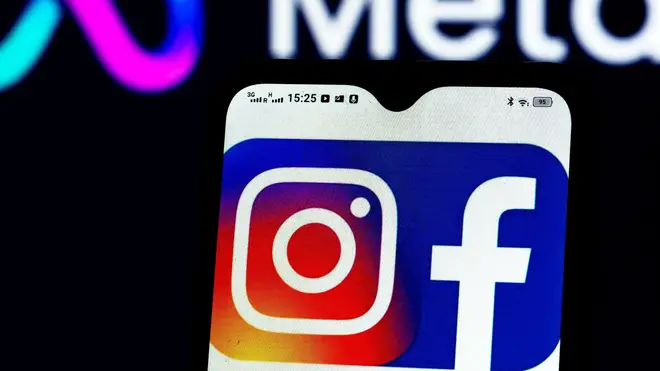
Shelagh Fogarty 1pm - 4pm
21 March 2022, 17:54

The court’s ruling bans Meta from opening offices and doing business in Russia.
A Moscow court has banned Facebook and Instagram for what it deemed extremist activity in a case against their parent company Meta.
The Tverskoy District Court fulfilled a request from prosecutors to outlaw Meta Platforms and banned Facebook and Instagram for what they called “extremist activities”.
Prosecutors have accused the social media platforms of ignoring government requests to remove what they described as fake news about the Russian military action in Ukraine and calls for protests in Russia.
The court’s ruling bans Meta from opening offices and doing business in Russia.

Meta declined to comment when contacted by the Associated Press.
Prosecutors have not requested to ban the Meta-owned messaging service WhatsApp, which is widely popular in Russia.
The authorities also emphasised that they do not intend to punish individual Russians who use Facebook or Instagram.
Instagram and Facebook were already blocked in Russia after the communications and media regulator Roskomnadzor said they were being used to call for violence against Russian soldiers.
In addition to blocking Facebook and Instagram, Russian authorities have also shut access to foreign media websites.
The court’s verdict comes amid multipronged efforts by Russian authorities to control the message amid the military action in Ukraine, which the Kremlin describes as a “special military operation” intended to uproot alleged “neo-Nazi nationalists”.
A new law fast-tracked on March 4 by the Kremlin-controlled parliament, a week after Russia launched the attack on Ukraine, envisions prison terms of up to 15 years for posting “fake” information about the military that differs from the official narrative.